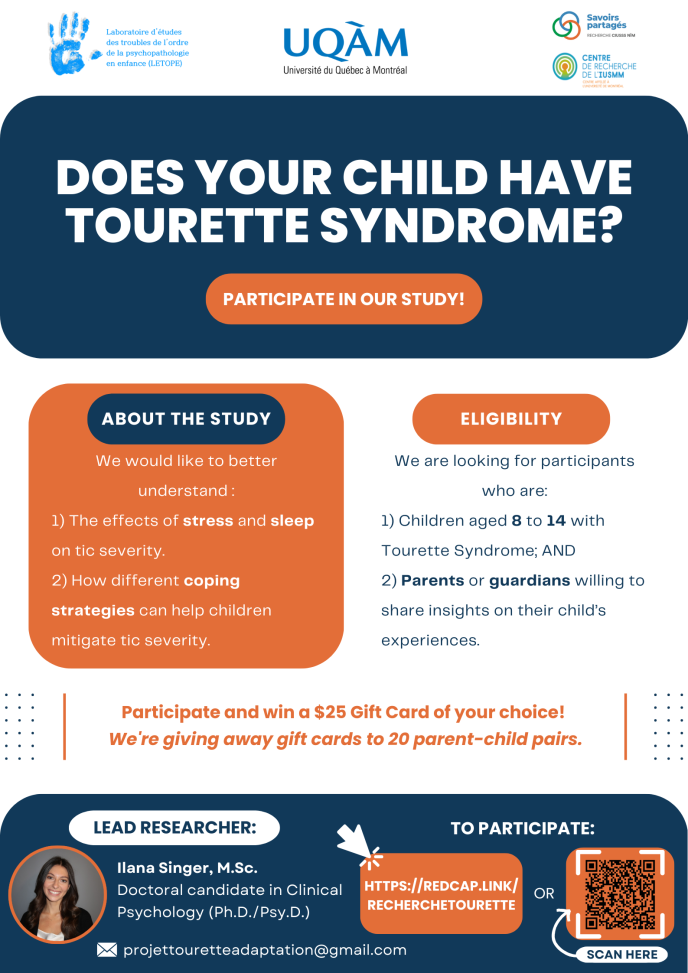Category menu

Research study investigating coping strategies, stress and sleep
Posted on 8 January 2025 by Pippa McClounan
An assessment of their relationships and influences on tic severity in children with Tourette syndrome
Tourette syndrome is a condition that is often recognized by the tics – sudden, repetitive movements or sounds – that it causes. While these tics are neurobiological in origin, their intensity and frequency can vary greatly due to a variety of internal and external factors. This can significantly affect the lives of children with the syndrome, impacting their self-esteem, academic performance, and social interactions. Due to these impacts, children with Tourette syndrome experience higher stress levels than their peers, which in turn, also effects their sleep.
This research explores the potential of coping strategies to manage the symptoms of TS, particularly focusing on how certain strategies can influence the severity of tics and associated difficulties, including stress and sleep. These strategies are divided into three categories: primary control (direct actions on the stressor or emotions), secondary control (internal techniques like cognitive reappraisal), and disengagement (distancing oneself from the stressor). Primary and secondary control coping have been shown to improve mental health outcomes in various clinical populations. These coping methods help manage both stress and sleep issues, which could be especially beneficial for young people with TS.
This study aims to explore these coping strategies among children with TS, examining how stress and sleep affect tic severity, whilst also aiming to investigate whether these strategies can alleviate the symptoms associated with tics and the challenges they bring. This research is innovative because, unlike previous studies which often focused on parental coping strategies and a limited view of coping strategies, it applies a comprehensive model to understand the strategies used directly by the young individuals themselves.
Who can take part?
Participants who are children aged 8 to 14 withTourette syndrome and parents/ guardians willing to share insights on their child’s experiences.


